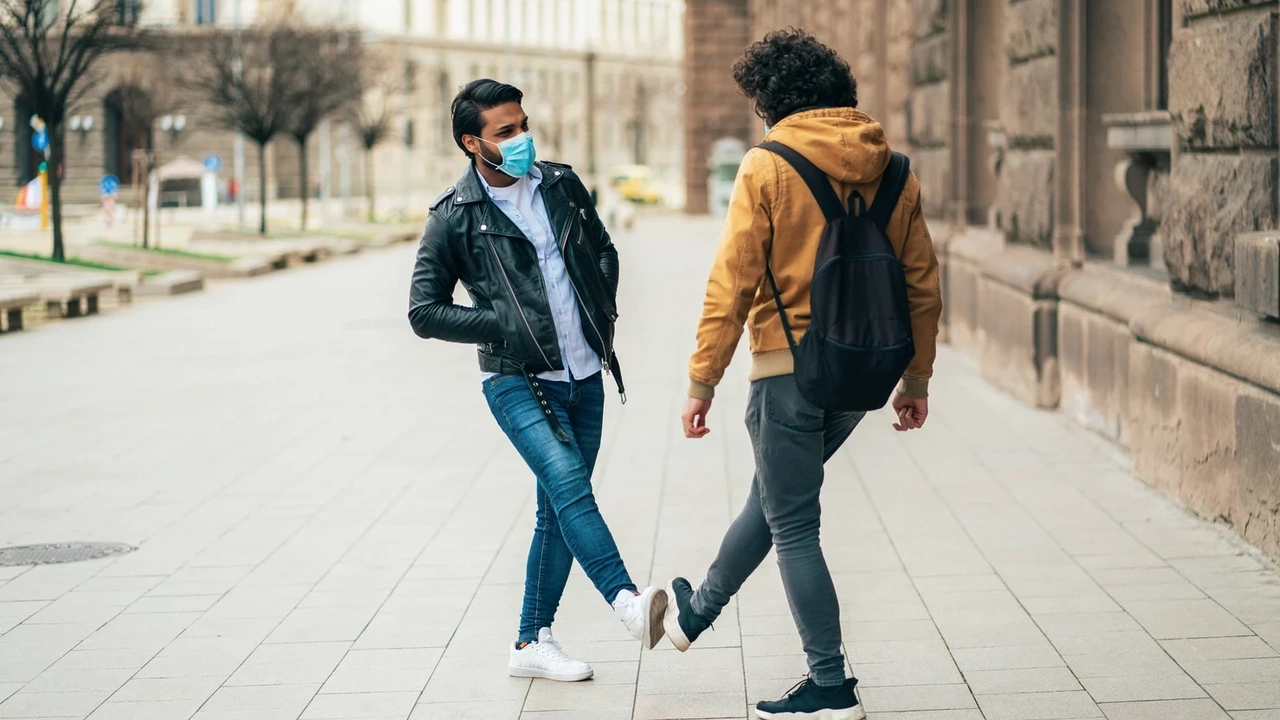The Need for Touch

Dec 14, 2020
We all need touch. If we are fortunate, as newborns we experience the calming touch of loved ones. Throughout our lives, touch is a primary way we bond with others. Medical studies tell us that physical touch triggers the release of the “feel good” hormone, oxytocin. It may be obvious that oxytocin increases with physical intimacy, but we also get an oxytocin hit when we hug, hold hands, and even when we sit close together. The benefits of that oxytocin surge include stress reduction and an improved ability to handle stress, increased social skills, heightened protective instincts, better sleep, and enhanced feelings of closeness with others.
How has physical distancing during Covid affected our oxytocin levels? Studies show that the pandemic has led to “touch deprivation.” Our drastic reduction or elimination of physical contact over the past 10 months has had a significant impact on our oxytocin levels and has contributed to high blood pressure, anxiety, and elevated stress levels. Experts say that ongoing touch deprivation can lead to depression, aggression, and poor self-esteem.
So, how can we mitigate touch deprivation while we continue to “socially distance” during the pandemic, especially if we live alone? Here are some ideas:
- On a daily basis, hug and spend close physical time with those in your pandemic bubble.
- If you live alone, consider getting a “quarantine crew” – a small group of people you trust are following Covid-19 protocols and with whom you can safely interact.
- Adopt or foster a pet, or engage in a safe outdoor activity that involves animals.
- Give yourself a neck, hand or foot massage. It may not feel as good as your regular massage, but it has been shown to release oxytocin.
- Exercise regularly to release endorphins – the hormones known to improve mood. Your exercise can be as simple as a walk around the block or gentle stretching, or a full-on workout in your garage or backyard.
- Use a weighted blanket to simulate the sensation of physical touch.
- Make deliberate eye contact with people and express friendly gestures such as a wave, a thank you, or a warm hello.
You may have other ideas to mitigate touch deprivation. If so, I would love to hear them! Whatever you do, stay engaged with other people and allow your community to support you with some form of healing “touch.”
Stay connected with news and updates!
Join our mailing list to receive the latest news and updates from our team.
Don't worry, your information will not be shared.
We hate SPAM. We will never sell your information, for any reason.

